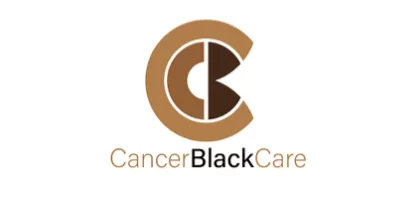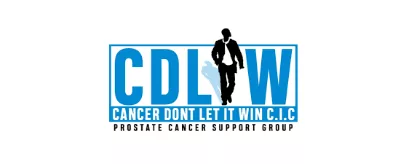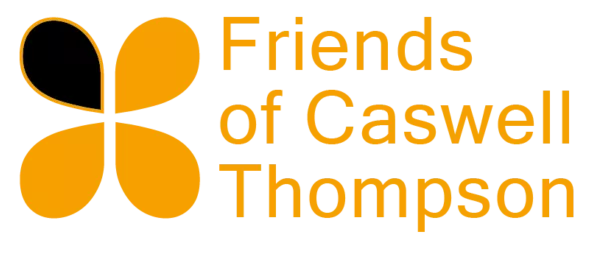Welcome
Thank you for visiting the Diversity in Prostate Cancer (PCa) PROMs Study page.
About the study
This study focuses on better understanding how prostate cancer impacts Black men of African and Caribbean ancestry, as well as men of mixed ethnic backgrounds. These groups have historically been underrepresented in research, despite facing higher risks and more aggressive forms of the disease.
Our goal is to make sure their voices are heard, their experiences are acknowledged, and their needs are reflected in healthcare services, policies, and research.
On this page, you’ll find detailed information about the study, its purpose, who can participate, and how the results will help improve care for these communities. You’ll also learn about the team behind the project, our international partners, and how to get involved.
Whether you’re taking part in the study, supporting someone who is, or just want to learn more, we’re glad you’re here.
Why is this study needed?
Black men are twice as likely to develop prostate cancer compared to White men. They are also more likely to be diagnosed at a younger age and with more aggressive forms of the disease.
These groups are often underrepresented prostate cancer research, so this study aims to make sure their experiences are better understood and reflected in healthcare and policies.
For men of mixed ethnic ancestry living, the study also wants to explore how their mixed heritage might affect their prostate cancer risk and outcomes—an area that hasn’t been studied enough.
What are the objectives of this study?
The Diversity in PCa PROMs Study aims to give a voice to underrepresented groups and create a more fair and inclusive approach to prostate cancer research and care.
- We want to identify shortcomings in accessibility to information and care.
- We want to understand the unique challenges these men face by looking at how social, economic, and healthcare issues affect diagnosis, treatment, and overall quality of life.
- We want to make real change by using the findings to improve healthcare services and access to information, change policies, and improve clinical guidelines to better serve these men.
How will these populations benefit from this study?
The Diversity in PCa PROMs Study can help Black men and men of mixed ethnic ancestry in several important ways:
- Giving them a voice:
By including their experiences, the study makes sure these men are seen and heard. It helps show their needs and challenges, making their voices stronger in healthcare and research discussions. - Improving healthcare access:
The study can point out where healthcare is lacking and push for better access to screenings, treatments, and support. This helps ensure these men get the care they need when they need it. - Tailoring treatments to their needs:
By understanding how prostate cancer affects these men differently, healthcare providers can create more personalised treatment plans. This means Black men and men of mixed ethnic ancestry are more likely to get the care suited to their unique needs. - Raising awareness and education:
As the study highlights the higher risks for Black men and men of mixed ethnic ancestry, it helps raise awareness in both the medical community and within these communities themselves. More knowledge can lead to earlier detection, better outcomes, and better-informed health decisions. - Influencing policy and guidelines:
The findings of this study can help change healthcare policies and clinical guidelines to address the specific needs of Black men and men of mixed ethnic ancestry. This could lead to more supportive healthcare programmes and better research focused on improving their outcomes. - Building community support:
The study can help create stronger connections between these men, patient groups, and healthcare providers. It can help create awareness and build a sense of community. It can help empower them to take control of their health and speak up for themselves.
Overall, the study helps men of Black African/Black African-Caribbean ancestry and men of mixed ethnic ancestry by providing the tools, information, and support they need to manage prostate cancer better and improve their healthcare.
Our Partners
Many different charities and patient support groups in Brazil, Sierra Leone, Suriname, the United Kingdom, and the United States are actively supporting this study.
Here’s a list of our partners:
- Cancer Black Care (CBC), UK
- CanSurvive UK, UK
- Cancer Don't Let It Win (CDLIW), UK
- Cancer UK Salone, UK and Sierra Leone
- Errol McKellar Foundation, UK
- Friends of Caswell Thompson (FOCT), UK
- Latin American Cooperative Oncology Group (LACOG), Brazil
- ORCHID, UK
- Prostate Cancer Foundation Suriname, Suriname
- Prostate Cancer UK (PCUK), UK
- Prostate Cancer Research (PCR), UK
- The Rose Thompson Foundation, UK
- Tackle Prostate Cancer, UK
- The Institute of Cancer Research (ICR), London, and Royal Marsden NHS Foundation Trust, UK
- ZERO Cancer, USA
The Study Team
This study is run by a dedicated team. Here’s a bit about who they are and what they do.
Professor Eamonn Rogers
Eamonn is a Consultant Urologist at Bon Secours Hospital in Galway. As Chairman of the European Association of Urology Patient Office, he is in charge of this project.
Denzil James
Denzil is a Research Programme manager in the Oncogenetics Team at The Institute of Cancer Research, London, and Royal Marsden NHS Foundation Trust. As the Programme Manager, he is responsible for managing the project, formulating the findings and recommendations, and preparing the final report.
Esther Robijn
Esther is the Senior Coordinator at the European Association of Urology Patient Office. She helps manage the day-to-day work related to this study.
Dr. Natalia Norori
Natalia is the Senior Data & Evidence Manager at Prostate Cancer UK. Her team will support Denzil with the collection and analysis of the data.
Dr. Harris Wong
Harris is a Senior Health Intelligence Analyst at Prostate Cancer UK. He will support Denzil with the study design, collection and analysis of the data.
Dr. Lukas Kurz
Lukas is a urologist at Charité – Universitätsmedizin Berlin in Germany. Lukas will assist Denzil with formulating the findings and recommendations and preparing the final report.
Dr. Márk Horváth
Márk is a urologist at Petz Aladar Hospital, Gyor in Hungary. Márk will assist Denzil with formulating the findings and recommendations and preparing the final report.
Dr. Eva McGrowder
Eva is a Senior Trial Manager in the Oncogenetics Team at The Institute of Cancer Research, London, and Royal Marsden NHS Foundation Trust. She is a strong advocate for Black men with prostate cancer and has worked closely with the Black community to raise awareness about the disease and the challenges they face. Eva also helps keep communication flowing between the Patient Office and the study’s stakeholders.
Rob Cornes
Rob is a male cancer nurse specialist and works for Orchid, a UK Charity that is dedicated to supporting anyone affected by prostate, testicular or penile cancer. Rob is a member of the EAU Patient Advocacy Group (EPAG) and eUROGEN and a patient advocate on the EAU Testicular Guidelines Panel.
Prof. Dr. Pereira Nuno Azevedo
Nuno is a urologist at the Centro Hospitalar de Entre o Douro e Vouga (CHEDV) in Portugal. He serves on the EAU Guidelines Office Board and is the CEO and founder of Ydeal, a data collection platform that supported the EUPROMS studies in 2019 and 2021. For the Diversity in Prostate Cancer PROMS Study, Nuno will support data collection and analysis through the Ydeal platform.
Dr. Lionne Venderbos
Lionne is an Assistant Professor and Quality of life researcher at the Erasmus Medical Centre in Rotterdam, the Netherlands. Lionne assists the team with the ethical clearance through Erasmus University.
Contact
If you have any questions about the study, feel free to contact us at info@patientinformation.org.
If you need help filling out the questionnaire, please contact your local charity. You can find their contact details below.
Participation in the Study
Who can take part in this study?
- You can take part if you are 18 years old or older.
- This is an online questionnaire, so you’ll need a phone, tablet, or computer with internet access.
- Before you join, you’ll be asked to give informed consent.
What does “informed consent” mean?
Informed consent means you understand what the study is about and what you’re agreeing to do.
You likely heard about this study through one of our partners, which means you’re eligible to take part. Or, you might be a partner, family member, or friend of someone with prostate cancer — you’re very welcome to complete the questionnaire together with them or on their behalf.
To participate, simply click the link or scan the QR code provided.
If you come across any wording or phrases in the questionnaire that are unclear, you can use the following link for further explanations and helpful definitions. This resource is designed to support your understanding and make the survey as straightforward as possible.
Do you need assistance?
If you need any assistance completing the questionnaire, please don’t hesitate to reach out. Our partners are here to support you and can be contacted at any time. You’ll find their contact details listed below.
About our partners
Cancer Black Care (CBC)

CancerBlackCare (CBC) is a non-profit organisation that provides support for all those living with and affected by cancer with an emphasis on black people and people of colour.
At Cancer Black Care, we believe that everyone, regardless of their background, deserves access to the best possible care and support when facing the challenges of cancer. Our emphasis (not exclusively) is to provide dedicated assistance to Black people and ethnic minority communities as they navigate the journey through cancer diagnosis, treatment, and survivorship.
"At Cancer Black Care is invaluable for Black people and people of colour affected by cancer, as it fosters cultural understanding, provides tailored services and creates a safe space where individuals can connect and identify with others who share similar backgrounds and experiences", - Sophie Sebaduka
Cancer UK - Salone
Cancer UK - Salone is a charity based in the UK that helps people with cancer who are struggling, both in the UK and in Sierra Leone. They focus on supporting patients from underserved and ethnic minority communities by offering care that respects each person’s dignity and needs.
Their services include emotional support, counselling, food for those in need, help for carers, and community outreach to make sure people can get to appointments and pick up medicine. In Sierra Leone, they run the country’s first big campaign to raise awareness about prostate cancer, encouraging men to get tested early and educating communities. In the UK, they work with other groups to support Black men, who are more at risk of prostate cancer, through local events and campaigns. The charity works closely with health workers and community partners and makes sure its volunteers are trained and safe to work with vulnerable people. Their goal is to make cancer care fairer, more accessible, and better for everyone.
If you'd like to get in touch with Cancer UK Salone, contact Tina Davies by phoning +44 07949401836 (UK) +232 79623439 / +232 80623623 (Sierra Leone). Email: tdavies@canceruksalone.com, info@canceruksalne.org
"When it comes to prostate cancer, silence kills — but support heals. For Black African men, early detection, equal access and community-based care are not just needs, they are rights. At Cancer UK-Salone, we stand firmly in the gap—ensuring that no brother walks this journey alone." - Cancer UK - Salone
Orchid
Orchid is a UK-based charity dedicated to raising awareness, advancing research, and helping to providing support for those affected by prostate, testicular, and penile cancer, with a strong focus on reaching diverse and underserved communities.
‘The Diversity in PCa PROMS Study is a vital tool for capturing the real experiences and outcomes of men, helping to ensure that their voices—particularly those from underrepresented communities—shape future care, research, and policy.’ — Rob Cornes, ORCHID

The Rose Thompson Foundation
The Rose Thompson Foundation is dedicated to protecting and improving the health of people, especially those from the global majority and low-income communities affected by cancer. We provide, facilitate, and support the delivery of care that respects different cultures and meets individual needs:
- Culturally appropriate and holistic cancer care
- Support group networks for patients and carers
- Community engagement and involvement to improve participation in clinical research
We aim to make cancer care more inclusive, supportive, and effective for those who need it most.
‘In February 2013, our founder, the late Dr. Rose Thompson, authored and launched a groundbreaking report in the UK House of Commons. It was titled “Hear Me Now! The Uncomfortable Reality of Prostate Cancer in Black African-Caribbean Men. This report sparked a national campaign, igniting a national conversation that continues to resonate today. The Rose Thompson Foundation is driven by such a call to action. Conditions like prostate cancer, breast cancer, and multiple myeloma are significantly more common in people of Black African and Caribbean descent, with risks often twice as high as those in the white population. We are therefore dedicated to protecting and improving the health of people, especially those from global majority and low-income communities affected by cancer. We aim to make cancer research, treatment and care more inclusive, supportive, and effective for those who need it most.’ — Lindsay Thompson, The Rose Thompson Foundation

CanSurvive UK
CanSurvive UK provides culturally sensitive support and information primarily however not exclusively for African and Caribbean people living with and beyond cancer, their families and carers. Their mission is to provide culturally sensitive support services and information for - though not limited to - African, Caribbean and other diverse communities affected by cancer, empowering them with confidence, resilience and strength to navigate its challenges.
Tel: +44 0161 232 1286
Email: marcella@can-survive.org.uk
Website: https://can-survive.org.uk/

CancerDon'tLetItWin
CancerDon'tLetItWin is a non-profit support group raising awareness of prostate cancer within Black communities.
‘We are sanctuary for men diagnosed with or recovering from prostate cancer. We understand the challenges and complexities that come with this journey, and our aim is to provide a safe and supportive environment where individuals can share their experiences, find solace, and gain valuable insights.’ ― Jeff Thompson, CDLIW
Contact person: Jeff Thompson
Tel: +44 0333 33 55 916
Email: cancerdontletitwin@gmail.com
Website: https://www.cancerdontletitwincic.com/

The Errol McKellar Foundation
The Errol McKellar Foundation is an exciting and unique charitable project founded by 60 year old football coach, former garage owner and prostate cancer survivor, Errol McKellar. It focuses on giving presentations and talks around the UK to raise the awareness of important men’s health issues, especially prostate cancer. Errol and others who have direct personal experience will explain the symptoms and outcomes relating to it and encourage men to have regular PSA tests.
Contact person: Errol McKellar
Tel:
Email: info@errolmckellar.com
Website: https://www.theerrolmckellarfoundation.com/
Friends of Caswell Thompson (FOCT)
Friends of Caswell Thompson (FOCT) is an organisation set up for, and dedicated to, raising awareness about prostate cancer in the BAME communities in Bristol and surrounding towns and villages through a range of activities, with a particular focus on reaching black men, who have an incident rate of 1 in 4. The general population is 1 in 8.
The company is named after our late and dear friend Caswell Thompson, who, sadly, succumbed to the disease at the age of sixty-one in 2016. It was his dying wish for us to continue raising awareness in the community; that promise was made. And by organising and running regular prostate cancer awareness open events for the whole community, in collaboration with Health Professionals and specialist clinicians, Friends of Caswell Thompson honours that commitment. ― Errol Campbell, FOCT
Contact person: Errol Campbell
Tel:
Email: admin@foct.uk
Website: https://www.foct.uk/

Prostate Cancer Research UK (PCR)
Prostate Cancer Research UK (PCR) is a UK-based charity committed to driving breakthroughs in prostate cancer treatment, especially for advanced stages. They invest in innovative science, support clinical trials, tackle health disparities, and ensure patients have a meaningful voice in shaping research and resources.
‘At Prostate Cancer Research (PCR), we are advancing groundbreaking research and treatments to create a future where prostate cancer no longer threatens lives. Our focus is on delivering innovative solutions and improving quality of life for patients, families, and communities affected by prostate cancer.’― Oliver Kemp, PCR
Contact person: Jayne Spink
Tel: +44 02037355444
Email: info@pcr.org.uk
Website: https://www.prostate-cancer-research.org.uk/
Prostate Cancer Uk
Prostate Cancer UK is the largest men’s health charity in the UK, striving for a world where no man dies of prostate cancer. 1 in 8 men will get prostate cancer, and if you’re Black, your risk is double. It’s the most common cancer in men, and now the most common cancer in England. We’re here to give men the power to navigate it.
We’re investing millions in prostate cancer research to revolutionise testing, treatment and care. We’re campaigning to raise awareness, right health inequalities and get more men a lifesaving earlier diagnosis. We’re providing expert advice and support to men affected by prostate cancer and those who love them. And in all we do, we work to make sure no man is left behind. The earlier you find prostate cancer, the easier it is to treat, and an earlier diagnosis could save your life. Find out more: prostatecanceruk.org
‘Black men have twice the risk of being diagnosed and dying from prostate cancer, yet we still know too little about how prostate cancer affects different aspects of their lives. The diversity in PROMs study will help close critical evidence gaps an ensure the needs of Black men are truly heard. Increasing the representation of Black men in PROMs data is an important step to get us closer to health equity in prostate cancer.’ ― Natalia Norori, Prostate Cancer UK
Contact person: Natalia Norori
Email: Natalia.Norori@prostatecanceruk.org
Website: https://prostatecanceruk.org/



